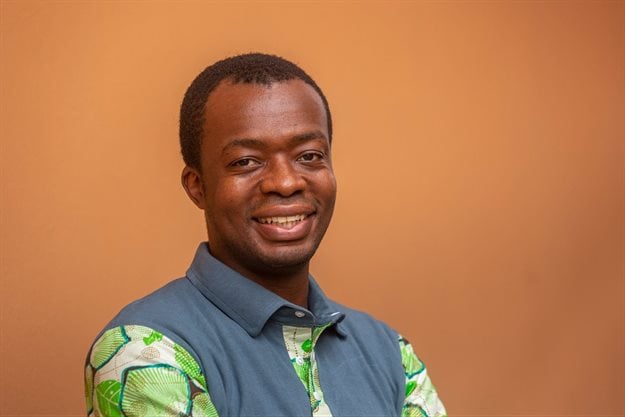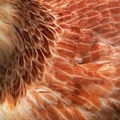Côte d'Ivoire's Noël N'guessan wins 2021 Africa Prize for Engineering Innovation

Kubeko is a set of low-cost biowaste processing equipment; its composter and biodigester are both specifically designed to ferment agricultural post-harvest by-products into solid and liquid compost, and cooking gas.
“Biowaste represents two to five times the quantity of crops or produce sold, amounting to 30 million tonnes of waste disposed of annually in Côte d’Ivoire,” said N’guessan. “By repurposing this waste, Kubeko can help Ivorians generate extra income, dramatically improving the lives of thousands of farmers and their families.”
N'guessan wins the first prize of £25,000 (19 058 427,00 West African CFA). At the virtual awards ceremony held on 8 July 2021, four finalists delivered presentations, before Africa Prize judges and a live audience voted for the most promising engineering innovation.
"We really appreciated the professionalism of the APEI, adding value to our businesses. It was hard work, and share this award with our entire team," said N'guessan.
Engineering innovations that address crucial problems
The Africa Prize for Engineering Innovation, founded by the UK’s Royal Academy of Engineering in 2014, is Africa’s biggest prize dedicated to engineering innovation, and has a proven track record of identifying successful engineering entrepreneurs. Now in its seventh year, it supports sub-Saharan African entrepreneurs with engineering innovations that address crucial problems in their communities in a new and appropriate way.
Since being shortlisted for the Africa Prize, the Kubeko team has made progress in reducing its production costs from $800 to $700, making their products affordable. The team has installed two biodigesters running on cassava farms, with 50 composters installed to date on cocoa, palm oil and mango farms. Kubeko has also been commissioned by the Ministry of the Environment and Sustainable Development in Côte d'Ivoire to train stakeholders on the use of Kubeko, as part of the department’s national composting and biowaste strategy.

“We were very impressed with the Kubeko solution which has huge potential to impact many lives of farmers in West Africa,” said Africa Prize judge Ibilola Amao. “We believe Kubeko will contribute greatly to sustainable energy and farming in the region."
Training and mentoring
Sixteen shortlisted Africa Prize entrepreneurs from eight countries in sub-Saharan Africa received eight months of training and mentoring - conducted virtually due to the Covid-19 pandemic - during which they developed their business plans and learned to market their innovations. The group received coaching on communicating effectively, focusing on customers and approaching investors with confidence.
The Africa Prize also exposes and connects the shortlist to individuals and networks in the UK and across Africa who can accelerate their business and technology development – from fellow entrepreneurs and mentors to potential investors and suppliers.
The three runners up, who each receive £10,000, are:
- BlueAvo, Indira Tsengiwe from South Africa – a digital platform on which African creatives can collaborate and sell services as an agency-alternative that is rich in diversity, and places African creatives at the world’s fingertips.
- Make3D Medical, Juka Fatou Darboe from The Gambia - uses 3D printing to create customised orthopaedic equipment for medical institutions and their patients.
- Social Lender, Faith Adesemowo from Nigeria – a financial services solution that uses social reputation scoring to provide credit scores to those who would otherwise not qualify for formal financial services.
In addition to the main prizes awarded, the remaining 12 innovators from the 2021 shortlist pitched their innovations to a live audience who voted for the pitch that showed the most promise and potential for impact. Yusuf Bilesanmi was selected as the inaugural winner of the Africa Prize’s One-to-Watch Award of £5,000. The award recognises the potential of Bilesanmi’s innovation, ShiVent, a low-cost, non-electric and non-invasive ventilator for patients with respiratory difficulties.
"ShiVent does not require electricity, is easy to install, non-invasive and oxygen efficient, and our belief is that it can help save lives when more expensive or oxygen-intensive technologies can’t get to patients," said Bilesanmi.
To date, the 101 Africa Prize alumni businesses have raised more than $14m in grants and equity and created more than 1,500 new jobs, with over 50% of these going to women and a significant proportion to disabled people and youth.
The eighth Africa Prize for Engineering Innovation is now open. Individuals and small teams living and working in sub-Saharan Africa, and who have an engineering innovation, are invited to enter. Potential entrants can find more information here. The deadline for entries is 20 July 2021.
The other 12 candidates shortlisted for the Africa Prize 2021 were:
- Aevhas, Jacob Azundah from Nigeria – a high-efficiency machine used to process cassava roots into the West African diet staple, garri.
- Biopackaging, Armelle Sidje from Cameroon – a sustainable manufacturing process that transforms banana and plantain stems to biodegradable paper packaging products.
- CodeLn, Elohor Thomas from Nigeria – an automated tech recruitment platform that supports software engineering recruitment by connecting companies with talented people in the field and helps test their coding abilities.
- Dissolv Bioplastic, Tshepo Mangoele from South Africa – a bioplastic made from plant waste material, which is compostable and dissolves in water at pre-determined rates.
- I3S, Marie Ndieguene from Senegal – a sustainably made and affordable storage space solution made from diverted landfill waste, designed to solve the problem of post-harvest loss in agriculture.
- Jumeni Field Service Software, Eyram Amedzor from Ghana – software that assists service-based businesses by providing a three-part cloud-based application to help increase the productivity of their field teams.
- Mkono-1, Dr Atish Shah from Tanzania – a locally 3D-printed prosthetic hand that provides an affordable solution for people living with upper limb amputations.
- Orbit Health, Pazion Cherinet from Ethiopia – a digital health platform that manages and stores patient data and dispenses medication, allowing for seamless continuity of care.
- Reeddi, Olugbenga Olufemi Olubanjo from Nigeria – an energy system used to provide clean, reliable and affordable electricity to households and businesses operating in energy-poor communities.
- RealDrip, Taofeek Olalekan from Nigeria – an intravenous therapy solution combining the internet of things and AI to monitor dosages, flow rates and intake time.
- ShiVent, Yusuf Bilesanmi from Nigeria – a low-cost, non-electric and non-invasive ventilator for patients with respiratory difficulties.
- SuaCode.ai, George Boateng from Ghana – a smartphone application that uses artificial intelligence to teach coding remotely.














